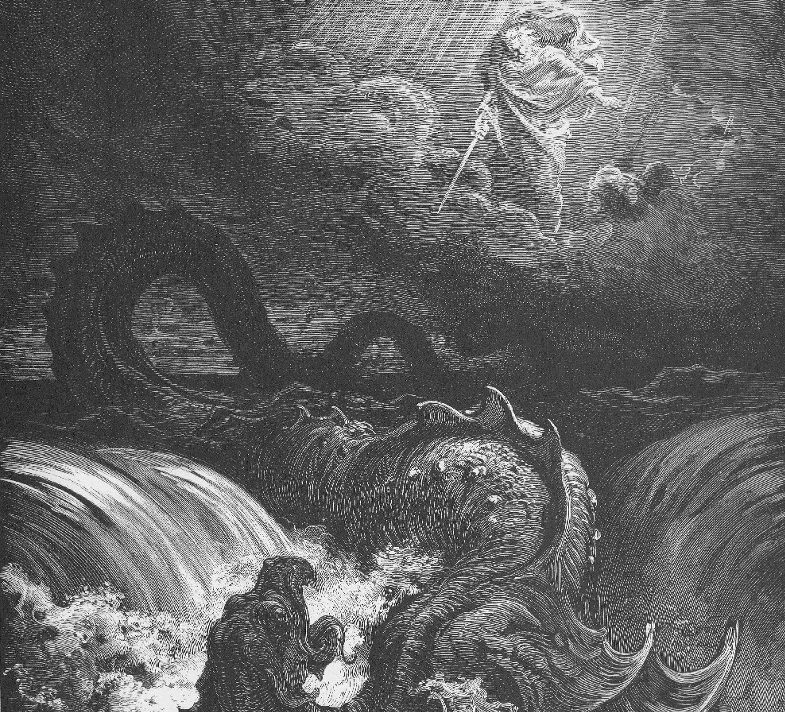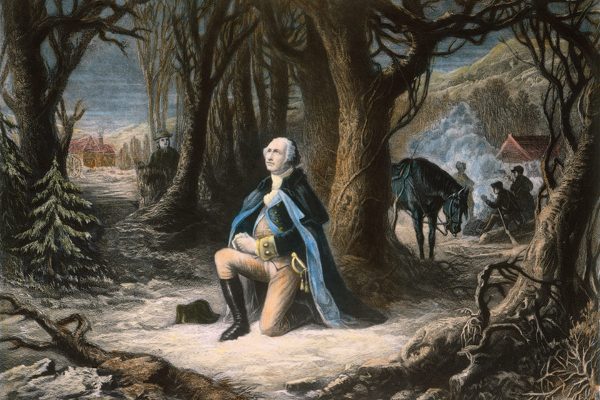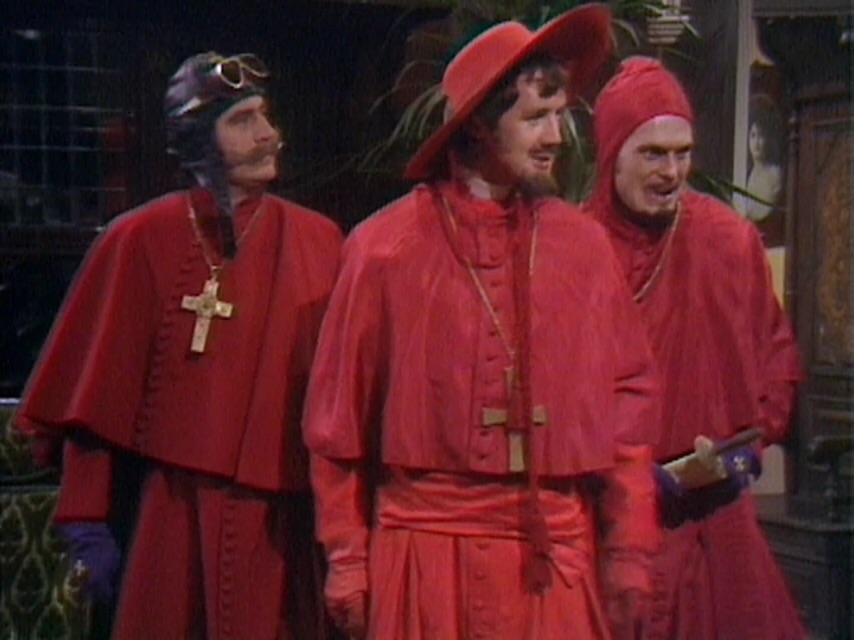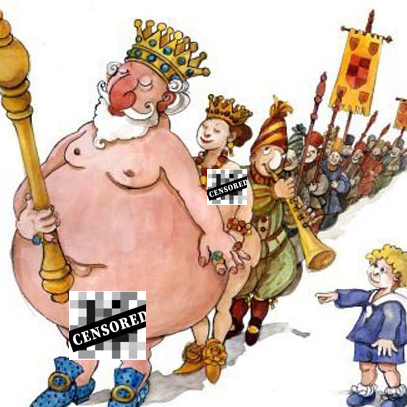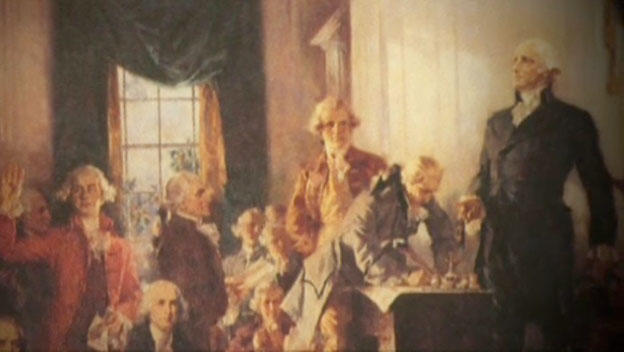Liberalism Is the Politics of Fear.
The Common Good Is Coming, but Not because of You
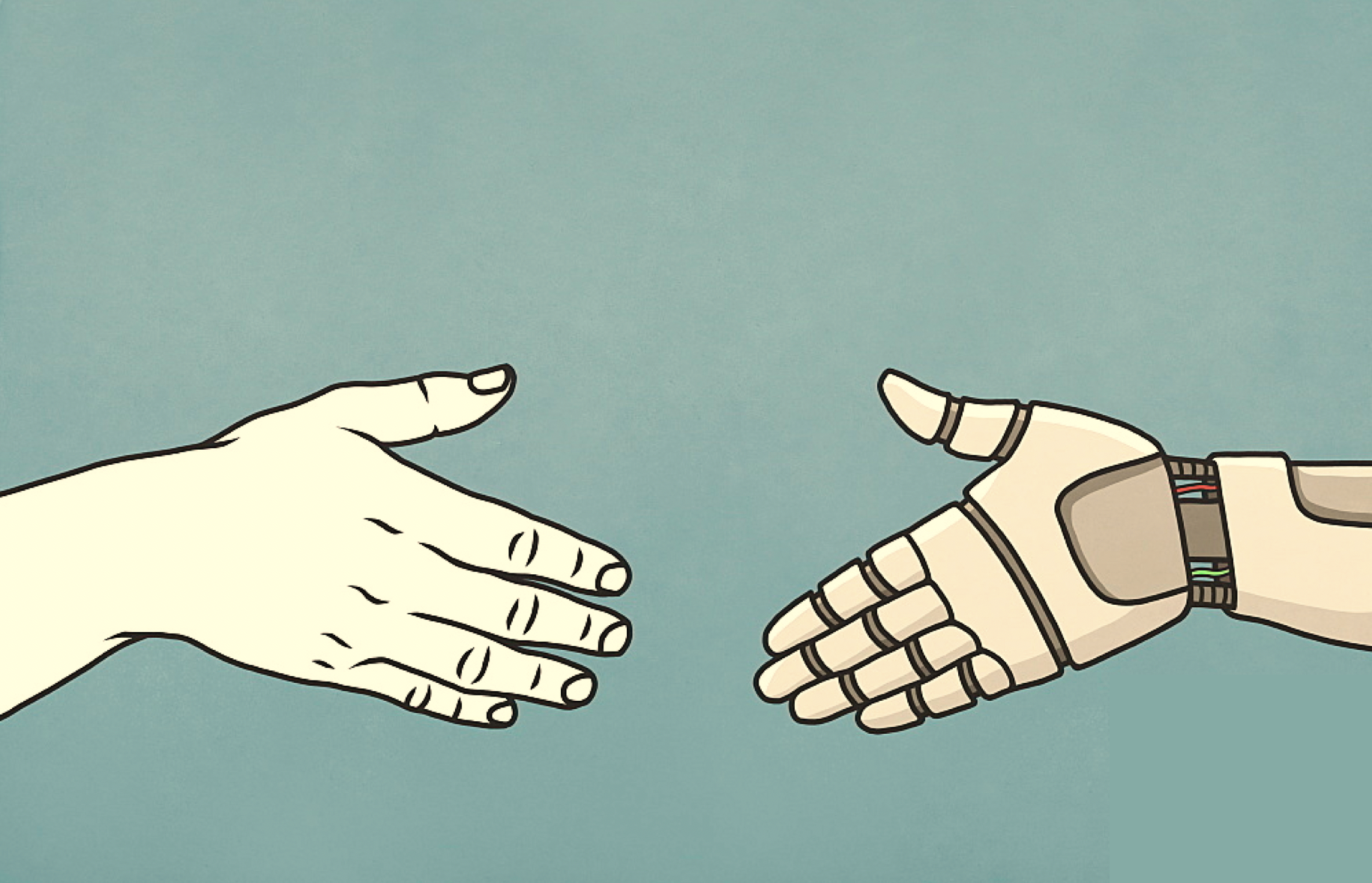
Digital conditions, not competing intellectuals, will make it so.
Intellectuals are bugging out on the internet! This is happening for two large reasons, both of which are reactions to being on the losing end of the digital transformation.
First, public intellectuals characteristically depend for their relevance and utility on a habitus that the triumph of digital technology over our perceptual environment is quickly obliterating.
Second, the fear even many top pundits feel as a result of this unwelcome change is compounded by their sense that, nightmarishly, somehow technology has caused the Old World to finally “catch up” with the New World, pulling America back into the fundamentally unjust and miserable historical timeline of Europe.
This, even more than the tizzy people get into when a competitor successfully plays the attention-grabbing game online, accounts for the mania of umbrage flying around, say, Adrian Vermeule’s recent intellectual broadside in favor of an integralist makeover of the American regime.
The success of Vermeule’s effort at forcing a hostile audience to pay him all-valuable online heed has sent a fresh shiver through the respectable mainstream: Why, at a time when the value of argument and explanation as such is cratering, does his dog and pony show magnetize so much rare and precious status credit from the four corners of the internet?
Is it because the horrible tech lords created a virtual world where normie values can no longer effectively defend themselves, and regressive fantasies drawn from the Dark Ages of the Dark Continent (Europe) can now freely infest our progressive, liberal country?
It’s Not the Ideas, Stupid
The bone-deep sense of betrayal normie elites have felt at the one-two punch of Trump and Corona is easy to blame on “tech,” as so many house organs of the normie elite do routinely. The internet was supposed to consummate and perfect their globalist project of freeing everyone’s imagination and connecting everyone into a single world harmony.
The failure of peoples and then of elites themselves to infuse the reigning ideals of the progressive imagination into the practice of real “governance” put normie elites at great risk of disillusionment. Their hope rushed into technology—big data, social media, and the large ethically correct corporations that would work hand in glove with government administrators to at last make the dream come true. Instead what we got was a huge backlash against not just normie elites but the whole informational ecosystem that provided the foundational justification for their globalized form of rule.
Wrongly, normie elites saw this backlash as fundamentally ideological! In their pre-digital habitus, only ideology could explain why people would turn so savagely against the ruling class of expert arguers and explainers.
This view lays bare the error of their thinking: ideology is a devotion not just to a particular set of concepts, but to the ethical and epistemological primacy or supremacy of concepts in general. Virtue, in this line of thinking, is not something to be found in virtuous persons, but rather exists “out there” in the realm of imagination, only to be retrieved for worldly implementation by an elect of people who “followed their dreams” to become expert in properly thinking it up.
Normie experts are now experiencing a horrible wake-up call. The ostensible white-collar “knowledge work” elite, our credentialed and authoritative arguers and explainers, had at some point actually become the handmaidens of (we might say) a pink-collar “fantasy work” elite, whose doctrines on truuuue public ethics grew steadily more recondite, unnatural, and uncompromising as the Great Awokening set in. If our normie knowledge worker elite had been victimized by ideologues, it was actually the fanatical imagineers on their own nominal “side” who were the oppressors.
Doubtless some anti-elite ideologues captive to their own fantasies had cropped up in the digital churn. But the epic tidal wave of anti-elite and anti-expert sentiment and sensibility was hardly the product of spergy LARPers of malintent. It arose from more and more “regular” people simply accepting what their digitally re-formed perception was telling them: in our new psychological and technological environment, the power and potency of imagineering was ebbing quickly away, and the strength and significance of those who could orient themselves well in a world where memory mattered as much as fantasy once used to was swiftly swelling.
Ideology was not responsible for the credibility collapse of the expert normie elite because ideology itself—and the pre-digital psycho-technological environment that made ideology rule—was being overthrown.
In that sense, our tech lords really had created a virtual world hostile to our progressive, liberal regime. But, ironically, most of those tech lords were themselves ideologically committed progressive liberals whose psyches and souls were formed by the imagineering-centric televisual technology that preceded the rise of digital. (That’s why so many of them have been on apology tours lately.) And in a double twist of irony, the hostility to their own fantasy that they enabled technologically was not itself ideological!
Rather than giving ammunition to rivals in memeing the masses with ethically correct brain worms, they gave ammunition to a new culture class of people who—on the basis of observation and experience, not ideas—rejected any brainworm broadcast regime.
What’s the Point of Explaining?
As I recently remarked in reaction to Ross Douthat’s column on the ruin of expertise in the fog of the coronavirus, there is now no controlling conceptual authority (to borrow a favorite line from Al Gore). This has not happened because of “unethical memes” on the loose but because, in the digital habitus, the concept itself no longer rules. Those who self-identify as experts need to understand that the concept of “that or who which is expert” is crumbling because concepts as such have lost authority to percepts, an inevitable and logical result of digital pulling memory forward and pushing imagination back.
This spells a soul-crushing double disenchantment for the expert arguers and explainers who make up, prestige-wise at least, our upper middle class.
Just “yesterday” the laws of the discourse were as solid and dependable as the laws of physics: compete well in words against rival ideologues, and reap the awards and rewards that nourish pride and power. Today that is toast: there is less guarantee than ever that anything of value will come your way if you master the arts and sciences of words well enough to argue and explain at the elite level. In fact you may even find yourself worse off than before—not just in terms of your social credit level but in terms of precious life force and soul stamina spread thin to the point of evaporation.
Even just being obliged to argue and explain puts one at a disadvantage. The sense of already losing is in the air, as those free simply to do—those who do not need to pause to undertake hero’s journeys of the imagination—stealthily gain the upper hand. The dividing line today is not between flavors of ideology but between the exhausted and the stamina-rich. The invisible enemy “behind” the virus is exhaustion, physical, mental, and spiritual.
Even the finest arguments and explanations are now all too often akin to urine sprayed into the wind, which not uncommonly blows back at oneself.
The Coming Common Good
Which brings us back to Vermeule and company. In spite of it all, these appear to be very good times for expert explainers and arguers focused on taking down intellectual liberalism. This makes liberals feel not only incensed but resentful. But the reality is that, in spite of it all, things are not as bad for “the liberal” as they seem, and while things are even better for the illiberal intellectuals of the Right than they think, they are better in ways too few of them yet understand.
This is not as oracular a pronouncement as it seems. People fighting about whether we “should” turn America’s ideological clock back to a premodern age such as the early 1600s are, on both “sides,” equally mistaken! Too many illiberal intellectuals on the Right have not yet accepted the terms of common life established in the digital age: what will be retrieved from the past—and much will be!—will come not on the back of enterprising ethicists imaginatively availing themselves of power, but on the back of public perceptions re-shaped soul-deep by our new media environment itself.
These intellectuals should flip some of their favorite ideological scripts. The key today is not that “we should” march through the institutions, but that institutions do march through you; the future will not belong to those who believe that the sovereign decides the exception, but to those who understand how the exception decides the sovereign.
Decades of dreaming of making ethically correct concepts come true in real life—subsidiarity, distributism, whatever—must give way to a recognition that something like these arrangements will emerge in practice not because of correct concepts but because of changing conditions. The medieval is not coming at long last to America because expert ideologues devoted to its “cause” will win against rival memers at perfecting the expression of their dreams in speech. It is coming because digital technology has re-formed our common life in a way that retrieves the hallmarks of that old habitus.
What are you Going to Do About It?
But liberals should not despair, even if the arrival of a medieval habitus on our New World shores makes it ever harder for them to “do liberalism” for a living.
True, the digital environment obsolesces the sociopolitical order of the modern West. Complexes of pre-digital institutions and ideals that once held such sway no longer authoritatively link up with reality; digital percepts are retiring modern concepts. As the socioeconomic and political forms of the arguing-and-explaining society break down, premodern Western forms of order familiar from medieval times—scribal recordation and embellished biography in language, lineage and loyalty in action, to name a few—increasingly align with our perceptions in the digital context.
So it shouldn’t be controversial or even puzzling to suggest the digital age puts the Catholic Church specifically at a big advantage in surviving the sea change in Western order, or in helping individuals and peoples struggling to stay afloat and find paths back toward stable, sustainable flourishing. The Church has built in, and actively cultivates, many hallmarks of the medieval habitus that digital retrieves and rewards. It is no wonder that common-good political philosophy now emanates up primarily from Catholic thought today. Catholics have good reason to be a perceptual step or two ahead of many others.
But one area in which illiberal intellectuals of the Right are not always a step ahead regards understanding digital media. This understanding should disabuse people of the notion that there is much cheese down the tunnel of competing to win the imaginations of expert elites or of common people. Whatever your confessional identity or your ideological priors, now is a time for accepting that we no longer live in a world where conceptual contestation as it was practiced and mastered in the televisual age is fruitful.
And of course, Catholic political theory is not the only game in town in the digital age. The medieval habitus involved more than one church or regime form: just in the Orthodox West, to take a few immediate examples, you had the millennia-old Eastern Roman Empire as well as the now-obscure but freshly intriguing Novgorod Republic, which lasted longer than the United States of America has to date. And in the still-Protestant West, America, despite its track record of great and unique flourishing in the modern age, still includes at its roots and origins primary elements of the medieval Western habitus. The liberal as it was understood in the medieval West was a divine and human trivium of word (grammar), thought (dialectic), and speech (rhetoric)—the key to anyone’s noble leisure, a.k.a. liberty.
When you take the time to probe the American character, you will see that even today the overwhelming share of Americans intuitively accept this organization of reality, which was processed more faithfully than critics believe into the American creed of natural rights in accordance with natural law. We may and do disagree, sometimes bitterly, on what those rights and that law entail. But the digital disenchantment sweeping through us does not endanger our American identity—or the fundamentals of the progressive regime we have built atop it, no matter how much that regime is set to change.
Intellectuals working to understand the return of a politics of the common good in America are best served accepting that a sociological approach, not an ideological one, will deliver the goods for them and their country. If a new Christian moralism is to be re-woven into the fabric of our shared life, it will not come at the front of an army of perfect ideas and words, banners blazing. It will come humbly, in deed, trailing the ordeal of the digital transformation, settling into the quiet places, large and small, opened for us anew.
The American Mind presents a range of perspectives. Views are writers’ own and do not necessarily represent those of The Claremont Institute.
The American Mind is a publication of the Claremont Institute, a non-profit 501(c)(3) organization, dedicated to restoring the principles of the American Founding to their rightful, preeminent authority in our national life. Interested in supporting our work? Gifts to the Claremont Institute are tax-deductible.
More than abstraction is at stake.
"Real Originalism has never been tried..."
In its effects, it is synonymous with liberalism.
A jurisprudence for all seasons—especially ours.
Only a dark theology can baptize the administrative state.

